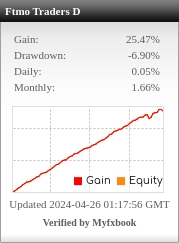
Navigating the Regulatory Landscape of Prop Trading: Key Considerations for Traders
In the world of forex trading, prop trading (proprietary trading) has become increasingly popular among traders looking to maximize their profits. While prop trading can be a lucrative venture, it also comes with its fair share of challenges – particularly when it comes to navigating the regulatory landscape. In this article, we will explore some key considerations that traders must keep in mind when engaging in prop trading.
Understanding the Regulatory Environment
One of the first things that traders need to consider when engaging in prop trading is the regulatory environment in which they operate. Different countries have different regulatory bodies that oversee the forex market, and it is important for traders to familiarize themselves with the rules and regulations that govern their activities. In the United States, for example, prop trading is regulated by the Securities and Exchange Commission (SEC) and the Commodity Futures Trading Commission (CFTC), while in the UK, it falls under the jurisdiction of the Financial Conduct Authority (FCA).
Compliance with Regulatory Requirements
Once traders have a thorough understanding of the regulatory environment in which they operate, they must ensure that they are in full compliance with all relevant requirements. This includes obtaining any necessary licenses or registrations, maintaining adequate capital reserves, and adhering to strict reporting and disclosure guidelines. Failure to comply with these requirements can result in severe penalties, including fines, suspension of trading privileges, and even criminal prosecution.
Implementing Best Practices
In addition to complying with regulatory requirements, traders should also implement best practices to ensure that their prop trading activities are conducted in a responsible and ethical manner. This includes maintaining accurate records of all trades, adhering to strict risk management protocols, and regularly reviewing and updating their trading strategies. By following these best practices, traders can minimize their exposure to regulatory scrutiny and protect their investments.
- Understanding the Regulatory Environment
- Compliance with Regulatory Requirements
- Implementing Best Practices
Conclusion
In conclusion, navigating the regulatory landscape of prop trading can be a complex and challenging task. By understanding the regulatory environment, complying with relevant requirements, and implementing best practices, traders can effectively manage their risks and ensure that their prop trading activities are conducted in a responsible and ethical manner. By following these key considerations, traders can maximize their profits and minimize their exposure to regulatory scrutiny.
For more information on forex trading and prop trading, visit Wikipedia.
For expert advice on prop trading, visit Forexmoneyman.com.



